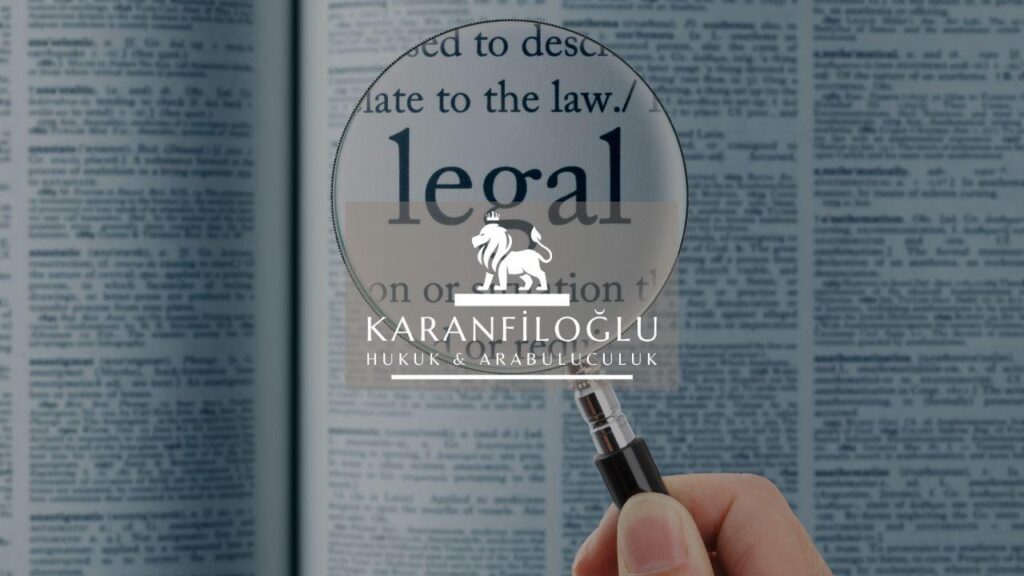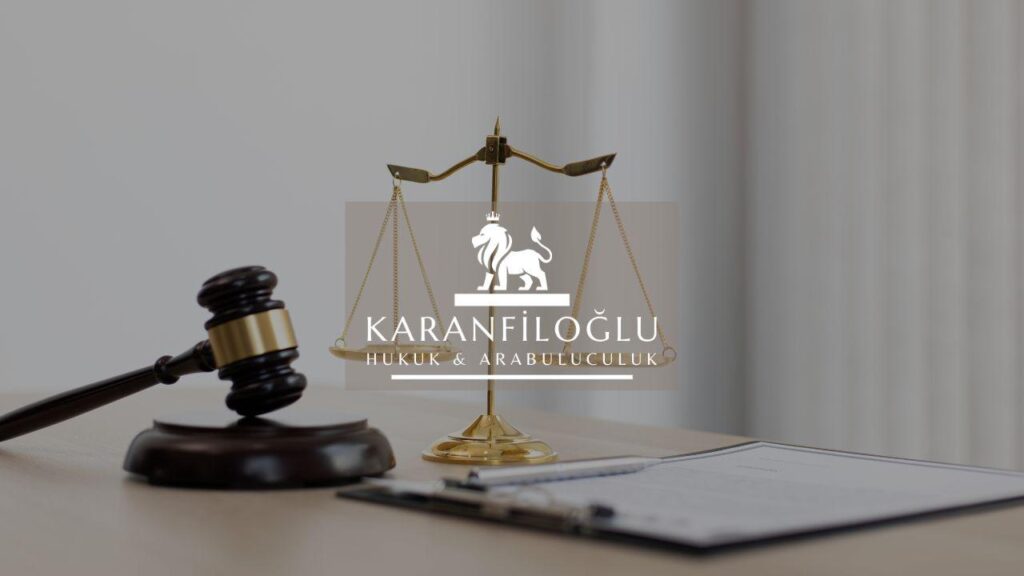Navigating the complexities of Turkish Pension Laws can be challenging, whether you are an employee, employer, or retiree. The legal framework is primarily defined by the Social Insurance and General Health Insurance Law No. 5510 and the Individual Pension Savings and Investment System Law No. 4632. These laws encompass a range of regulations governing mandatory and voluntary pension schemes, contributions, entitlements, and benefits. At Karanfiloglu Law Office, we specialize in offering comprehensive legal guidance on pension-related matters, ensuring our clients understand their rights and obligations under Turkish law. Whether you need assistance with the Social Security Institution (SGK) requirements or advice on private pension plans, our experienced legal team is here to provide bespoke solutions tailored to your specific needs.
Understanding Your Pension Rights in Turkey
Understanding your pension rights in Turkey involves acquainting yourself with the main legislative framework, particularly the Social Insurance and General Health Insurance Law No. 5510, which outlines the mandatory schemes for retirement. According to Article 27 of Law No. 5510, individuals who have completed the required insurance duration and premium payment days, and have reached the stipulated retirement age, are entitled to a pension. Additionally, Law No. 4632 regulates the Individual Pension Savings and Investment System, allowing individuals to benefit from voluntary private pensions to supplement their retirement income. This system is designed to provide more flexibility and financial security, with governmental incentives such as tax benefits enhancing the appeal of participation. By understanding these foundational laws, individuals can better navigate their pension rights and make informed decisions to secure their future.
In addition to understanding eligibility criteria, it’s crucial to be aware of the calculation methods for pensions under Turkish law. According to Article 29 of Law No. 5510, the amount of the monthly pension is determined based on the average of the individual’s earnings, insured days, and specific coefficients set forth by the legislation. For voluntary pensions under Law No. 4632, the accumulated savings and investment performances are the primary determinants of the eventual payout. These calculation methods ensure a fair reflection of an individual’s contributions and lifetime earnings. Furthermore, recent amendments have introduced provisions like the gradual increase in retirement age and adjustments in contribution rates to keep the pension system sustainable. At Karanfiloglu Law Office, we can assist you in understanding and optimizing these computations, ensuring you receive the maximum benefits to which you are entitled.
Importantly, staying informed about recent legislative changes and their implications is essential for effectively managing your pension rights. For instance, Law No. 7244, enacted to address the financial implications of the COVID-19 pandemic, introduced temporary adjustments affecting the pension landscape, including deferrals in social security contribution payments and enhancements in pension benefits for affected individuals. Moreover, the Turkish government periodically updates pension regulations to align with economic realities and demographic shifts. These changes can significantly influence your retirement planning strategies. At Karanfiloglu Law Office, we meticulously monitor these legislative updates to provide timely and relevant advice, ensuring our clients remain compliant and well-prepared. Whether you need help understanding how new laws impact your pension entitlements or require assistance navigating bureaucratic procedures, our dedicated team is equipped to offer expert guidance tailored to your unique circumstances.
Navigating the Turkish Pension System: A Legal Perspective
Navigating the Turkish pension system requires a keen understanding of both mandatory and voluntary components governed by different legislative frameworks. Mandatory pensions are regulated under the Social Insurance and General Health Insurance Law No. 5510, which mandates compulsory contributions from both employees and employers into the Social Security Institution (SGK). This law outlines eligibility criteria for retirement, pension calculation methods, and the conditions under which benefits are paid. On the other hand, voluntary pension plans are governed by the Individual Pension Savings and Investment System Law No. 4632, which encourages additional savings through private pension accounts. These private schemes offer tax incentives and flexible contribution options, providing an additional layer of financial security. At Karanfiloglu Law Office, we help our clients navigate these laws to optimize their pension benefits and ensure compliance with all legal requirements, giving them peace of mind for their retirement years.
Understanding the eligibility criteria and specific requirements for retirement under Law No. 5510 is crucial for employees planning their retirement. Eligibility for retirement is contingent upon fulfilling age, insurance duration, and minimum contribution days, which vary based on the worker’s employment start date and gender. For instance, an employee who started working before September 8, 1999, may have different retirement conditions compared to someone who began after this date. Additionally, early retirement options are available under certain circumstances, such as hazardous job conditions or disability, as outlined in Articles 25 and 28 of Law No. 5510. At Karanfiloglu Law Office, we assist clients in determining their retirement eligibility and optimizing their claims by thoroughly evaluating their work history and contribution records. Our expertise ensures clients maximize their entitled benefits while maintaining compliance with all regulatory requirements.
Moreover, private pension schemes, regulated by Law No. 4632, provide an opportunity for Turkish citizens and residents to complement their mandatory pension benefits through additional savings. These voluntary plans are especially beneficial for those looking to enhance their retirement income, as they offer advantages such as government contribution incentives and flexible investment opportunities. For instance, the government matches 25% of the individual’s contributions, significantly boosting the accumulated savings over time. Understanding the intricacies of these plans, such as contribution limits and withdrawal conditions, is fundamental for optimizing the benefits. At Karanfiloglu Law Office, we offer expert guidance on selecting suitable private pension plans and managing contributions effectively. With our in-depth knowledge of Law No. 4632, we help clients navigate the registration process, make informed decisions regarding investment strategies, and ensure that their additional retirement savings are secure and beneficial.
Key Changes in Turkish Pension Legislation
The landscape of Turkish pension legislation has seen significant amendments in recent years, aimed at adapting to socio-economic changes and improving the sustainability of the pension system. One notable update is the increase in the retirement age, as defined under Law No. 5510, which now stipulates a gradual rise to 65 for both men and women, with full implementation expected by 2048. Furthermore, adjustments to the calculation for pension benefits have been made, where the new formula under Article 29 of Law No. 5510 emphasizes longer contribution periods and higher average monthly earnings. Another key change involves Law No. 4632, which governs the Individual Pension Savings and Investment System, introducing new incentives for voluntary contributions, including a state contribution of 25%, as detailed in Article 5 of the regulation. These revisions reflect a broader strategy to encourage both mandatory and voluntary participation in order to enhance retirement security for future generations.
In addition to these pivotal changes, Law No. 5510 has also introduced more stringent criteria for early retirement under its newly amended provisions. Specifically, Articles 31 and 32 outline new occupational and health-related conditions that must be met for individuals to qualify for early retirement, thereby tightening access to pensions before the standard retirement age. Furthermore, employers now face augmented responsibilities regarding their contributions toward employees’ pension funds, as enforced by Article 43, which mandates regular audits and stricter compliance measures to ensure timely and accurate payments. Moreover, the introduction of automatic enrollment in private pension plans, as per Article 6 of Law No. 4632, aims to broaden the scope of pension coverage across the workforce, mandating private sector employers to enroll their employees into the Individual Pension Savings and Investment System unless they opt-out. These regulatory enhancements signify a comprehensive approach to fortifying the financial health of Turkey’s pension ecosystem while incentivizing both employers and employees to collaboratively secure a stable post-retirement life.
These legislative updates underscore a shift towards a more sustainable and inclusive pension system in Turkey. It’s crucial for employees and employers alike to stay informed of their evolving rights and obligations under these laws, as non-compliance can result in significant financial and legal repercussions. At Karanfiloglu Law Office, we understand the intricacies involved in navigating these changes and offer expert legal assistance to help you comply with the latest regulations. Whether you are seeking guidance on eligibility criteria, contribution calculations, or specific legal advice on pension disputes, our knowledgeable attorneys are committed to providing tailored solutions. By staying ahead of these legislative changes, Karanfiloglu Law Office ensures that your interests are protected, and your retirement planning aligns seamlessly with the latest legal requirements in Turkey.
Disclaimer: This article is for general informational purposes only and you are strongly advised to consult a legal professional to evaluate your personal situation. No liability is accepted that may arise from the use of the information in this article.







